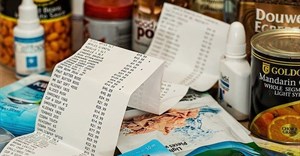Study in unpackaged retailing reveals increased affordability for mass market

The trials began with Spaza shop experiments, focusing on rice and oats. Notably, the strategy of selling small quantities intended for same-day consumption — such as one cup of rice or one bowl of oats — led to a significant increase in product volumes. Unpackaged rice and oats, dispensed from specialised dispensers, surpassed the sales of popular packaged brands like Tastic and Jungle Oats. Encouraged by these results, a four-product trial was launched in Spar Tembisa.
Consumers quickly embraced the concept, and sales volumes experienced an impressive fivefold growth over six months, resulting in over 2-tonnes of sales across more than 5,500 transactions. Surprisingly, even for well-established products like rice, unpackaged purchase volumes were three times higher than packaged items under 1kg, despite the pricing not always being cheaper than packaged alternatives. Most importantly, the introduction of unpackaged options did not negatively impact the sales volumes of packaged goods; instead, they attracted additional customers, expanding the overall market reach.
A snap customer survey indicated that out of a random sample of 25 customers, 60% were first-time users who had initially been hesitant about the new approach, while 40% were repeat customers. The primary reason cited for repeat purchases was overwhelmingly affordability.
Further research was conducted to understand the post-purchase behaviour of consumers. The data revealed that most customers bought products in paper bags from the store and transferred them into containers at home. These containers ranged from existing boxes to repurposed Ricoffy tins, showing that the absence of traditional packaging did not hinder consumer convenience.
Remarkably, the lower prices did not have an adverse effect on retailer margins. In fact, gross margins for retailers increased by an impressive 17%-32%, depending on the product, demonstrating that the unpackaged approach can be economically viable for both consumers and retailers.
However, it was not without challenges. The trial at Spar Tembisa revealed an increase in theft, likely due to the small sizes and generic brown bag packaging of the products. Although theft is a common issue in stores, especially for small items, it's crucial to address this concern when implementing similar solutions in the future.
In conclusion, the experiments conducted in Tembisa have showcased the potential of unpackaged retailing to offer affordability to the mass market. Not only did it attract new customers, but it also proved economically viable for retailers. As the global call to reduce plastic waste intensifies, such innovative approaches may pave the way for a more sustainable and accessible future for consumers across various markets.


















